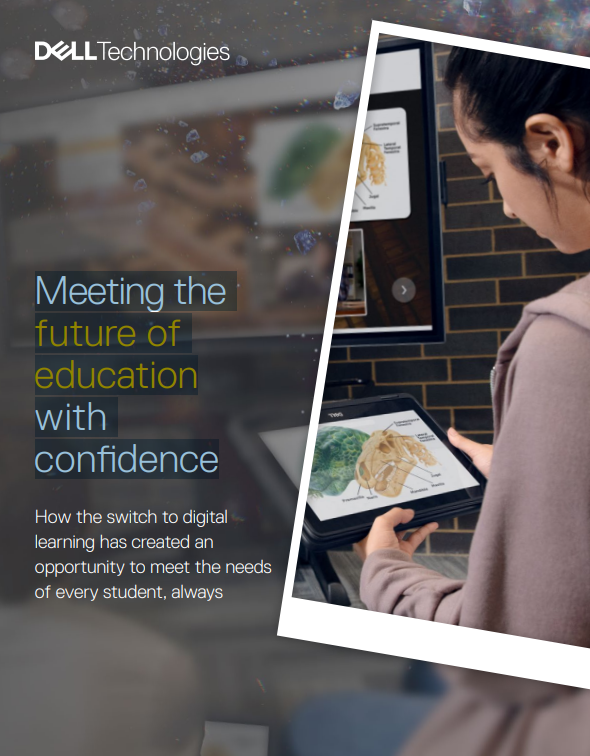UK gov launches £300,000 SEN EdTech initiative
The pilot scheme will run throughout this academic year in the hope of identifying how technology can 'level the playing field' for students with disabilities and special educational needs

This April, nearly 100 UK schools will receive ‘ground-breaking technologies’ designed to support pupils with educational and learning disabilities.
That’s according to a statement from the UK government, which has earmarked £300,000 to fund the designing and developing a technology-backed educational trial.
Funding for this research is part of the Department for Education’s £10 million EdTech Strategy, which is aiming to implement innovative technologies across schools nationwide in order to optimise student learning and performance.
The study’s primary objective is to identify the most efficient and practical technologies for everyday classroom use. Software is expected to take centre stage, including ‘text-to-speech’ and ‘speech recognition’ programs, which may be particularly helpful to students suffering from dyslexia. According to the NHS, one in ten people in the UK are thought to be affected, to some degree, by dyslexia.
The technology could also “level the playing field” for students with more complicated, limiting disabilities, the government said, particularly students afflicted with severe motor impairments. Eye-gazing technologies, which track eye movement across a monitor, allowing individuals to communicate without physically producing speech, are set to be rolled out in the pilot trial.
The CEO of the British Dyslexia Association, Helen Boden, welcomed the news of the initiative, but tole IT Pro technology “is not a replacement for the early diagnosis of dyslexia and specialist support”, adding that “government cuts to education funding mean that availability of these vital services is poorer than at any time in recent memory”.
The trial will run for the duration of the 2020-21 school year.
Sign up today and you will receive a free copy of our Future Focus 2025 report - the leading guidance on AI, cybersecurity and other IT challenges as per 700+ senior executives
In a speech at BETT announcing the initiative, Minister of Universities, Science, Research and Innovation, Chris Skidmore, told delegates: “Harnessing the power of modern technology can help us change lives and unlock the potential of every child.
“With technological advances happening at increasingly breakneck speed, it is only right that we ride the wave so pupils in our classrooms with special educational needs are given all the support they need.”
-
 Will autonomous robotics leap forward in 2026?
Will autonomous robotics leap forward in 2026?In-depth Connectivity and cost benefits remain barriers, despite breakthroughs in physical AI
-
 AWS and NTT Data team up to drive legacy IT modernization in Europe
AWS and NTT Data team up to drive legacy IT modernization in EuropeNews Partnership between AWS and NTT DATA aims to boost AWS European Sovereign Cloud capabilities
-
 IBM pledges support for UK government cyber skills program
IBM pledges support for UK government cyber skills programNews The CyberFirst Girls competition is aimed at increasing diversity in the cyber security workforce
-
 The race is on for higher ed to adapt: Equity in hyflex learning
The race is on for higher ed to adapt: Equity in hyflex learningWHITEPAPER Fulfil student and faculty needs
-
 Practical ergonomics guide for education
Practical ergonomics guide for educationWHITEPAPER Save energy, focus, and promote overall well-being
-
 CyberEPQ program expansion aims to get more state school pupils into cyber security
CyberEPQ program expansion aims to get more state school pupils into cyber securityNews The CyberEPQ program hopes to lower the barrier to entry for students seeking careers in cyber security
-
 Open University embarks on £10m scheme to offer more advanced technical courses across the UK
Open University embarks on £10m scheme to offer more advanced technical courses across the UKNews The new scheme aims to target higher education "cold spots" and plug gaps where courses are currently unavailable
-
 Technology reimagined
Technology reimaginedWhitepaper Why PCaaS is perfect for modern schools
-
 Meeting the future of education with confidence
Meeting the future of education with confidenceWhitepaper How the switch to digital learning has created an opportunity to meet the needs of every student, always
-
 Education redefined
Education redefinedWhitepaper Ensuring inspirational learning for everyone, everywhere